1. Engage Professionals to Fast Track your Sale
Once you have made the decision to sell your business, you will need to consider whether to engage a business broker, being a professional who helps buy and sell businesses. Unless you already have a proposed purchaser for your business, a business broker can assist in fast tracking your sale.
At this stage you should also discuss your proposed sale with your solicitor. Your solicitor will outline the merits of preparing a market contract for the sale of business at this time, which can result in a quicker and easier exchange process once a purchaser is found.
2. Determine What is for Sale and What is the Value
You will then need to determine what in fact is for sale. If you are selling your entire business, then it is usually all of the assets, intellectual property, registered business name and other relevant contractual arrangements (such as a lease) that are required to carry on the business. Your solicitor will be able to assist you in considering what assets should be sold/transferred and what agreements and contracts need to be transferred and/or terminated on completion of your sale.
Valuing your business is about working out how much your business is worth so you can set the right price when selling. Whilst your broker may provide a general guide to the value of your business, you may also wish to engage an expert business valuer to make sure you are selling for the right price.
You may also be interested in a related article Sale of Business – Why is the Apportionment between Goodwill and Equipment Relevant?
3. Once you Find a Purchaser
Once a proposed purchaser is found, they may wish to negotiate certain terms in the contract, including sale price, deposit, settlement period, handover period, existing staff or vendor finance arrangements. Your solicitor can assist you decide what terms you will agree to and provide advice on any special conditions sought by the proposed purchaser.
It is also a good idea at this stage to communicate with your Accountant to confirm that the sale will be a sale of a going concern, and thus not subject to GST, and whether any CGT concessions may be available to you upon the sale of your business. This may influence the price you are willing to negotiate with any proposed purchaser.
Once an agreement has been reached, preferably with the advice of your solicitor, your solicitor prepares the contract, or if a market contract was already prepared, makes the necessary amendments to the market contract as negotiated with the purchaser. It is important to have a solicitor prepare your contract to ensure it addresses all appropriate matters, including limiting the scope of any warranties and liabilities you may have to the purchaser.
Your solicitor will then send the contract to the purchaser’s solicitor for their review, approval and execution. While there may need to be some further negotiation, once the contract has been agreed upon, the solicitors will confirm exchange and both you and the purchaser will be bound by the sale, subject to any conditions that may have been negotiated (such as a subject to finance clause).




























